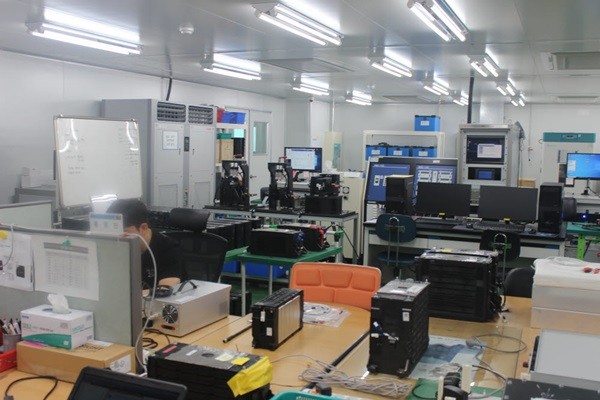There is a venture capital-backed company called Mintech in Yuseong Techno Valley, which is about a 20 minute drive from Daejeon Station and is like a center of South Korea’s cutting-edge technologies, that is currently working on technologies that may prove to be very valuable electric vehicles. Mintech was established in 2015 and it is known for its technologies that can perform diagnosis and inspection on batteries.
Collection and reuse of batteries has emerged as a serious issue as the global electric vehicle market continues to expand. Performance of an electric vehicle battery that can last between 8 to 10 years can fall to 70 and 80% after going through series of charge and discharge. In this case, such battery is categorized as a dead battery. Although it can be used longer, it is thrown away since it is a dead battery. This can create a serious social issue as it can lead to waste of resources and environmental pollution as the number of batteries thrown away will continue to increase as supplies of electric vehicles increase.
As a result, reuse of batteries has emerged as a necessary task that needs to be resolved. Different companies are working on technologies that will reuse high-quality batteries for ESS (Energy Storage System) or mobility devices. Some also predict that reuse of batteries will grow as an industry that will be worth $41.7 billion (50 trillion KRW) in 2030.
Mintech possesses technology that can determine whether a battery can be reused or not. Its technology is seen innovative as can also perform diagnosis on high-voltage batteries such as 1000V battery.
A battery’s quality is currently determined by how many times it goes through charge and discharge and this process easily goes over 20 hours. However, Mintech reduced the time to 20 minutes. It measures impedance that reacts to when current or alternating current voltage is energized and gives a final grade on a battery after checking status and output, lifespan, and charge amount of each cell.
“We believed that it is meaningless if costs of diagnosis, disassembling, and reconstitution are expensive.” said CEO Hong Young-jin of Mintech. “We also focused on cost reduction in addition to accuracy in diagnosis.”

Its technology is drawing eyes from various industries. Its diagnosis system is used in Jeju Island (Jeju Techno Park) where electric vehicles were supplied first and it is currently working on a project with Korea Electric Power Corporation (KEPCO) regarding checking performance of battery ESS. It is also working on various projects such as mobile charging system based on reused batteries with major auto makers and VC-backed companies.
The reason why it was able to and currently participating in large-scale projects when it was established only five years ago is because it is backed by experts in the industry. CEO Hong was the head of the battery business department of VK, which was once a top four cellphone company in South Korea, and he has done researches in battery more than 20 years. The company’s executives and employees are also experts in battery.
Mintech just took a first meaningful step and it made $834,000 (1 billion KRW) in sales last year. However, it is estimated to make $4.17 million (5 billion KRW) in sales this year as more companies will look for Mintech for its battery diagnosis technology.
Mintech will continue to work on improving its battery diagnosis technology. Demands for its technology will continue to grow as its technology will be needed for batteries that are almost dead and electric vehicle and ESS. As it can be applied in various fields, Mintech is planning to improve and develop the technology.
“Although the degree of difficulty in high-voltage battery diagnosis technology is very high, we believe that we just turned the corner regarding technological aspect.” said CEO Hong. “Through data collection and analysis that are the next steps to equipment development, we are going to work on technologies that can check the status of a battery through deep learning and artificial intelligence.”
Staff Reporter Yun, Geonil | benyun@etnews.com